Crypto Recap
Apr 13, 2025
Weekly Crypto Recap (April 7th - April 13th)
Weekly Mindshare Recap
Vitalik Buterin Says Polymarket Reflects ‘Good Social Philosophy’ — Pump.Fun Doesn’t

Background: Ethereum co-founder Vitalik Buterin weighed in on the moral intent behind blockchain applications, warning that ideology matters as much as code when it comes to shaping crypto’s future.
Key Points:
- Polymarket, Farcaster, Railgun, and Signal were named by Buterin as examples of apps with a “good social philosophy” that align with Ethereum’s core ideals.
- In contrast, he labeled Pump.Fun, Terra/Luna, and FTX as apps reflecting “bad” philosophy, citing misaligned incentives and extractive behavior.
- Pump.Fun’s reputation took a hit after disturbing livestream incidents, including one death, leading to major declines in volume and usage.
- Buterin emphasized that Ethereum’s long-term success depends on building tools that serve broader public good, not just speculation or hype.
Key Takeaway:
Vitalik's comments signal a call to action for developers to build more ethically grounded dApps — and a reminder that crypto’s next chapter will be shaped by intentional design, not just technical prowess.
CZ Dismisses Claims He Informed on Justin Sun Amid DOJ Plea Deal

Background: Binance founder Changpeng “CZ” Zhao has responded to Wall Street Journal claims that he provided evidence against TRON founder Justin Sun as part of his plea deal with the U.S. Department of Justice, denying the report and hinting at a smear campaign.
Key Points:
- CZ called the WSJ report “smear material”, saying informants “don’t go to prison” and suggesting the article was paid for.
- Justin Sun also rejected the narrative, calling CZ a “mentor and a close friend” and praising cooperation with U.S. authorities via TRON’s anti-crime unit.
- The WSJ alleges Binance is lobbying to reduce Treasury oversight and may soon list USD1, a stablecoin from Trump-backed World Liberty Financial.
- CZ denied seeking a pardon, but noted he wouldn’t reject one, referencing his relatively rare prison sentence for a single BSA violation.
Key Takeaway:
While both CZ and Sun deny any betrayal, the report underscores ongoing tensions around Binance’s regulatory exposure—and raises questions about whether the Trump-era crypto pivot will reshape oversight for major players.
Why Fartcoin Is Blasting Off Again Amid Market Chaos

Background:
As broader crypto markets stumble under macro pressure—tariffs, volatility, and shaken risk appetite—Solana-based meme coins like Fartcoin are booming, with traders leaning into absurdity as a form of escape and speculation.
Key Points:
- Fartcoin surged 97% this week, with a 250% rally in the past 30 days, now trading near $0.96 after bottoming at $0.20 in March.
- It leads AI-related tokens in “mindshare” at 28.72%, according to Cookie.fun, reflecting a surge in attention across social and on-chain metrics.
- Analysts say traders are drawn to its raw simplicity—no roadmap, no founder, just sentiment-driven trading with high volatility.
- Other parody coins like Buttcoin and Titcoin are also rallying, up 39% and 18% today, echoing the pattern of copycat success seen throughout crypto history.
Key Takeaway:
Fartcoin's comeback illustrates how meme tokens thrive on sentiment and absurdity—often outperforming fundamentals during periods of macro uncertainty. With fewer exit-triggering events on the horizon, another full-blown meme coin cycle might not be far off.
Trump Memecoin Faces $320M Unlock as Price Hits New Lows
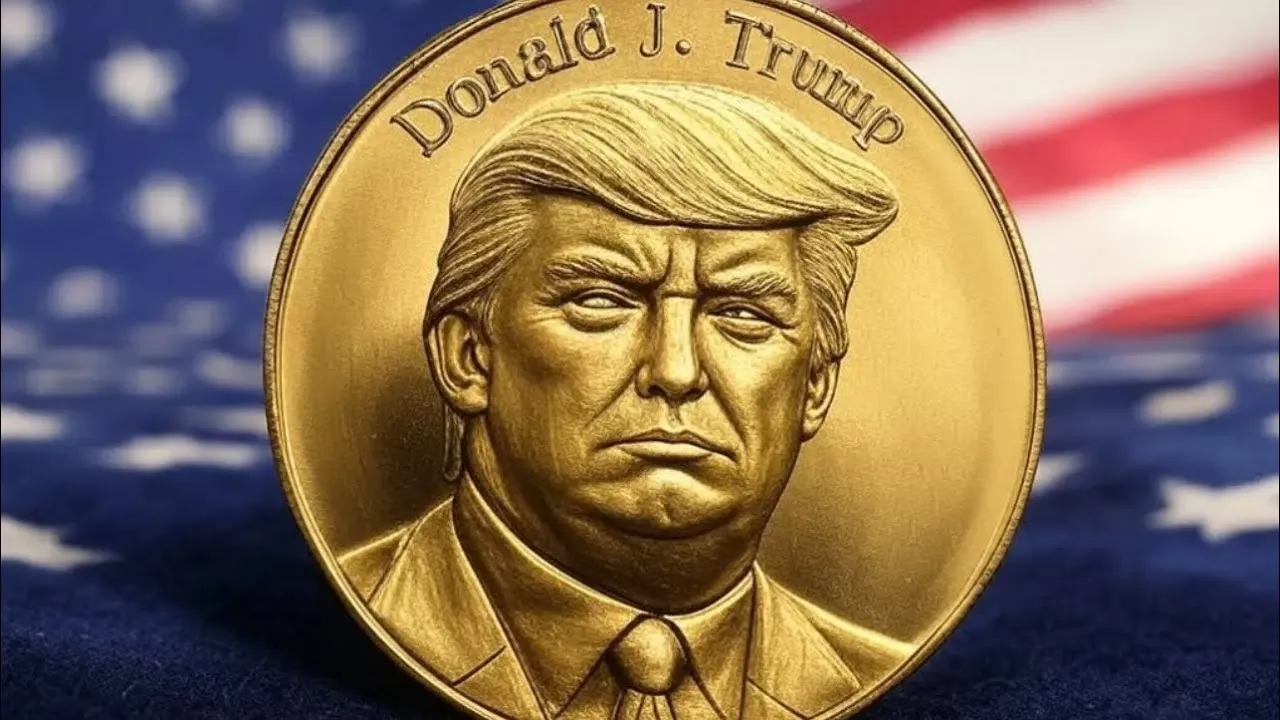
Background
The Trump-linked memecoin is approaching its first major unlock just as the token struggles with declining prices.
Key Points
- 40 million TRUMP tokens (20% of supply) will unlock on April 18, worth roughly $320 million.
- The token has dropped significantly since launch, hitting new lows this week.
- The unlock has sparked concerns over price dilution and insider activity.
- World Liberty Financial, the team behind the project, denied selling ETH after Arkham flagged a suspected $8M transaction.
Key Takeaway
As insider tokens prepare to hit the market, investors remain wary of further downside amid low sentiment and increased scrutiny.
ETH drops nearly 50% since Eric Trump's endorsement
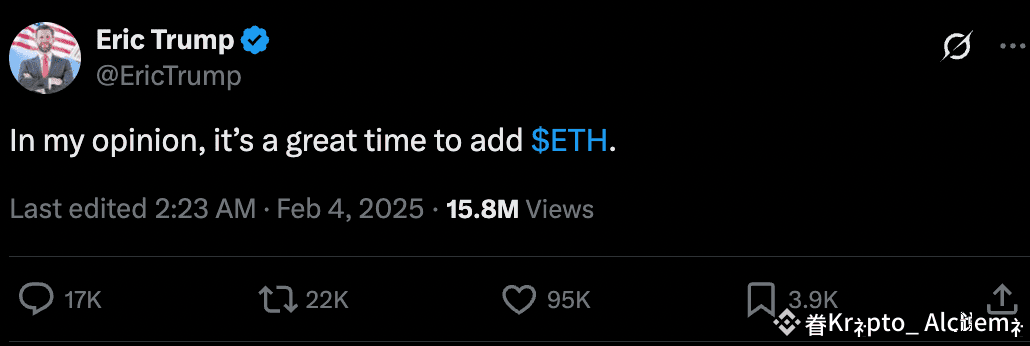
Background
Ethereum has plummeted 46% since Eric Trump called it a great buy, prompting backlash as the Trump-linked WLFI denies selling ETH despite $125M in unrealized losses.
Key Points
- ETH has fallen from $2,877 to $1,557 since Eric Trump’s February post, where he urged followers to buy.
- WLFI is denying reports that it sold 5,471 ETH worth ~$8M, despite blockchain data suggesting otherwise.
- Eric Trump deleted the tweet, but serves as WLFI’s “web3 ambassador.”
- WLFI's ETH holdings are down ~$125M, facing major drawdown amid broader market chaos and Trump’s tariff-driven global trade war.
- ETH/BTC ratio has dropped to levels last seen in 2020, currently sitting at 0.01895 BTC per ETH.
Key Takeaway
Trump-era volatility is rippling into crypto, and ETH’s sharp decline post-endorsement is fueling accusations of market manipulation, poor timing, and heavy losses for WLFI-linked portfolios.
Vitalik Buterin unveils roadmap for Ethereum privacy

Background
Ethereum co-founder Vitalik Buterin has released a new roadmap focused on enhancing privacy across wallets, DeFi apps, and core infrastructure—aiming to make privacy the default, not an afterthought.
Key Points
- Wallets should integrate privacy tools like Railgun or Privacy Pools, with “send from shielded balance” enabled by default—no separate privacy wallets required.
- Buterin proposes “one address per app” to break links between user actions across DeFi protocols, even if it sacrifices some convenience.
- New Ethereum upgrades like EIP-7701 and FOCIL would enable private transactions without relays and protect them from censorship.
- Trusted execution environments (TEE) and long-term private information retrieval (PIR) are suggested to shield RPC-level data and preserve user anonymity.
- Proof-aggregation tools would reduce fees for privacy protocols, making usage more accessible.
Key Takeaway
Buterin’s vision pushes Ethereum toward a future where privacy is embedded at every layer—from wallets to infrastructure—without compromising on decentralization or usability.
What Is REAL? Conor McGregor’s Staking-Enabled Memecoin Explained

Background
UFC star Conor McGregor launched a staking-enabled memecoin called REAL in April 2025, aiming to merge celebrity influence with decentralized finance. The project was built in collaboration with the Real World Gaming (RWG) DAO and promoted as a community-driven, utility-backed token. It featured staking, governance rights, and promises of future MMA-based applications. However, the launch did not meet expectations.
Key Points
- REAL token was launched via a sealed-bid auction with a minimum raise of $1.008M, but only managed to collect $392K, or 39% of the goal. All funds were refunded.
- Market conditions and memecoin fatigue played a role in the poor performance. ETH and SOL were down sharply, and memecoins in general saw a 60% drop in interest.
- McGregor’s persona and past controversies fueled skepticism about the token's credibility, especially amid a growing distrust toward celebrity-backed tokens.
- The tokenomics drew criticism, particularly a 12-hour unlock window seen as encouraging pump-and-dump behavior.
- The lack of a clear roadmap and questionable marketing tactics (including use of third-party logos) raised further concerns about legitimacy.
Key Takeaway
The failed REAL memecoin presale highlights the risks of celebrity-endorsed crypto projects. McGregor's star power wasn't enough to overcome poor timing, weak fundamentals, and market mistrust. For future projects, genuine utility and trust matter more than hype.
Ethereum Whale Offloads $27 Million After 9 Years

Background
An Ethereum whale wallet that received ETH as far back as 2016 has just cashed out $27.6 million via Uniswap, converting 18,437 ETH to USDC. At the time the ETH was received, the price hovered just above $8 per coin—making the realized gains potentially over 18,000%.
Key Points
- The whale swapped ETH in batches of ~1,400 coins to avoid spooking the market.
- Some of the ETH was received in 2022, but the bulk was untouched since 2016.
- ETH is currently down ~70% from its 2021 all-time high and trading at $1,517.
- The sell-off comes amid marketwide volatility, triggered by President Trump’s renewed tariff war, prompting risk-off moves across stocks and crypto.
Key Takeaway
After nearly a decade of holding, this Ethereum whale realized one of the longest-held crypto gains in recent memory—a quiet exit with a massive profit as macro uncertainty rattles the market.
Atomic, Exodus Wallets Targeted in New npm-Based Cyberattack

Background
Cybersecurity researchers have uncovered a sophisticated attack targeting users of Atomic Wallet and Exodus Wallet through malicious npm software packages, marking a new evolution in crypto-related exploits.
Key Points
- Malicious code was embedded in popular npm packages like
pdf-to-office, aiming to overwrite local wallet files. - The exploit alters the wallet UI, tricking users into sending funds to attacker-controlled addresses.
- This is part of a broader trend in software supply chain attacks, a growing threat in crypto.
- Hackers increasingly use address poisoning, UI spoofing, and developer account takeovers to access wallets.
- Over $2 billion was lost to crypto hacks in Q1 2025, including $1.63 billion from access control flaws.
Key Takeaway
As cybercriminals shift tactics to target wallet software dependencies, wallet users and developers alike must stay vigilant—security flaws buried in trusted code libraries are fast becoming the industry's weakest link.
Ethereum Developer Virgil Griffith Freed From Jail

Background
Virgil Griffith, the Ethereum developer convicted for attending a blockchain conference in North Korea, has officially been released from prison after serving part of his 56-month sentence.
Key Points
- Griffith was sentenced in 2022 for conspiring to help North Korea evade U.S. sanctions through blockchain education.
- His sentence was reduced from 63 to 56 months, allowing for early release this April.
- Attorney Alexander Urbelis shared a photo of Griffith reunited with his parents, calling it a "happy day."
- Despite his release, Griffith faces harsh post-release restrictions, including aggressive export limitations and a ban from working in crypto.
- Advocates are now pushing for a presidential pardon to lift the long-term restrictions.
Key Takeaway
While Griffith’s release marks a win for supporters, his legal and professional challenges continue, highlighting the tension between crypto innovation and geopolitical regulation.
Jack Dorsey's Block Settles for $40M Over AML Failures in NY

Background
Block, Inc. (formerly Square), the fintech firm led by Jack Dorsey, has agreed to pay a $40 million penalty to New York’s top financial regulator for failing to maintain adequate anti-money laundering controls within its Cash App crypto services.
Key Points
- NYDFS flagged “critical gaps” in Block’s AML program, including weak customer due diligence and insufficient oversight of high-risk Bitcoin transactions.
- The regulator said Block's compliance didn’t scale with the rapid growth of Cash App, exposing the platform to illicit finance risks.
- This settlement follows a $80 million payout to 48 other state regulators in January, resolving similar compliance violations.
- Block has agreed to hire an independent monitor and emphasized that it has made significant remediation efforts.
- The company did not admit to any wrongdoing in the settlement.
Key Takeaway
Block’s $40M penalty closes the chapter on its state-level AML issues, but also signals intensified regulatory pressure on crypto-enabled fintechs operating in major jurisdictions like New York.
Berachain Hit by $300M Outflows as Token and User Base Plunge

Background
Layer 1 blockchain Berachain is facing heavy capital flight, with over $300 million in net outflows and a steep drop in both token value and user activity, signaling growing concerns about sustainability post-incentives.
Key Points
- $308 million in net outflows over nine days — 690% more than the next highest (Arbitrum).
- BERA token down 40% over the past week, despite a 12% rebound following Trump’s tariff delay.
- Active users fell 61%, now at 23,000 daily, down from a March high of 60,000.
- TVL dropped 23% from peak, but Berachain still ranks as the 7th largest blockchain by TVL ($2.7B).
- Analysts cite expiring high-yield incentives and market-wide risk-off sentiment as primary drivers.
Key Takeaway
Berachain's early growth, fueled by aggressive incentives, may be faltering as the market rotates toward chains offering more sustainable yields—raising questions about the durability of its proof-of-liquidity model in less speculative conditions.
Paul Atkins Confirmed as SEC Chair, Signaling Pro-Crypto Shift
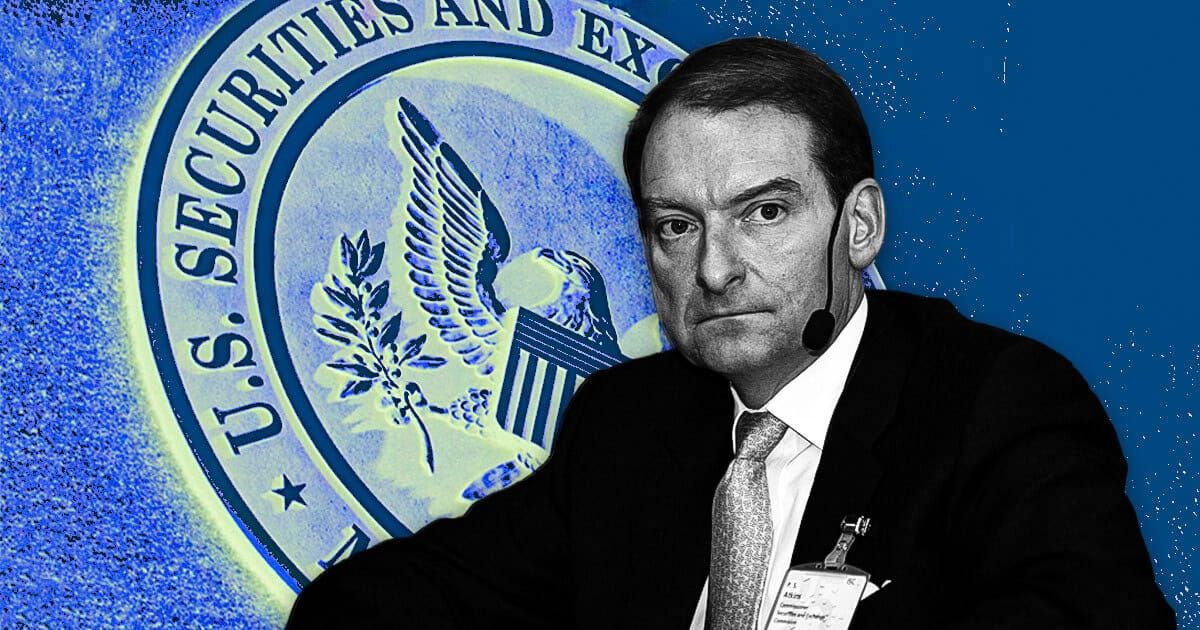
Background
The U.S. Senate has confirmed Paul Atkins as the new chair of the Securities and Exchange Commission (SEC) under President Donald Trump, marking a major pivot toward a more crypto-friendly regulatory environment.
Key Points
- Confirmed by 52–44 vote in the Senate on April 9, largely along party lines.
- Replaces Mark Uyeda, who had served as acting chair following Gary Gensler’s resignation.
- Atkins is a former SEC commissioner (2002–2008) and co-founder of Patomak Global Partners.
- He previously co-chaired Token Alliance, a crypto advocacy group, until late 2024.
- During confirmation, Atkins pledged a “principled” regulatory path for digital assets and greater industry clarity.
- His confirmation faced delays due to financial disclosures, including crypto holdings in Anchorage and Securitize.
Key Takeaway
With Atkins at the helm, the SEC is poised to soften its stance on crypto, favoring regulatory clarity and industry engagement over enforcement-heavy strategies seen under Gensler.
Cathie Wood’s Ark Invest Scooped Up $31M in Coinbase Stock Just Before Market Rebound

Background
Cathie Wood’s Ark Invest made a timely move by accumulating nearly $31 million worth of Coinbase (COIN) shares over three trading days just ahead of a major market rebound driven by President Trump’s tariff pause.
Key Points
- Ark ETFs added nearly 200,000 COIN shares between April 4 and April 8, totaling about $31 million in purchases.
- The investment came right before Trump’s announcement of a 90-day tariff delay, which sent stocks and crypto surging.
- Ark’s total COIN holdings reached 3.07 million shares, now worth roughly $550 million at ~$180/share.
- Coinbase stock jumped alongside broader markets and Bitcoin after the pause was confirmed.
- Cantor Fitzgerald issued a bullish $245 price target, citing Coinbase’s Base L2 network and USDC partnership.
Key Takeaway
Ark’s well-timed COIN accumulation adds to its long-standing bullish thesis on crypto infrastructure, with macro catalysts and new analyst coverage now fueling upside potential.
Magic Eden Acquires Slingshot to Expand Beyond NFTs
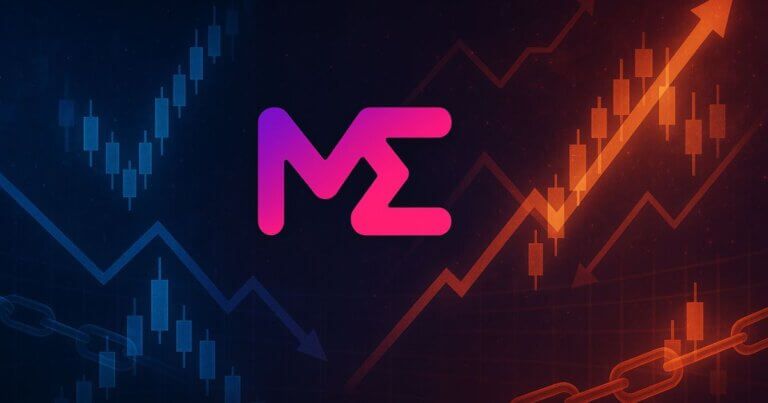
Background
NFT marketplace Magic Eden is acquiring the decentralized trading app Slingshot, marking a major strategic move to go beyond NFTs and embrace broader crypto trading.
Key Points
- Slingshot enables fast, onchain trading across multiple chains without bridging, offering access to more tokens than traditional CEXs.
- Magic Eden CEO Jack Lu sees crypto apps—not L2s—as the real long-term winners, with Slingshot positioned for mainstream mobile adoption.
- Support for major chains like XRP, TON, and Cardano is in the works, and social features are planned.
- The deal’s financial terms remain undisclosed, but integration between platforms may eventually include shared user identity and asset visibility.
- Slingshot is mobile-first, non-custodial, and accessible in the U.S. with fiat onramps like Apple Pay and PayPal.
Key Takeaway
Magic Eden is betting big on the rise of mobile crypto apps by acquiring Slingshot—positioning itself for a broader multi-asset future while NFT volumes remain sluggish.
Binance Launches LDUSDT, Letting Traders Earn While Using Futures Margin

Background
Binance is set to release LDUSDT, a new margin asset allowing futures traders to earn passive yield while actively trading, using their locked USDT from Simple Earn.
Key Points
- LDUSDT lets users swap locked USDT (from Simple Earn Flexible Product) into a margin asset for futures, while still earning real-time APR (currently ~1.5%).
- Unlike BFUSD, LDUSDT removes the need to choose between passive rewards and margin liquidity — offering both at once.
- The APR is never negative, and accrues exactly as it would in Simple Earn.
- Binance claims over 10M users in its Earn products and 250M+ users overall.
- Launch is expected this month, with no exact date yet.
Key Takeaway
Binance is blurring the lines between earning and trading with LDUSDT — letting users maximize capital efficiency by turning idle USDT into a dual-purpose asset.
Thailand Cracks Down on Foreign Crypto P2P Platforms in Anti-Cybercrime Push

Background
Thailand’s cabinet has approved amendments to national cybercrime and digital asset laws, targeting illicit crypto activity and tightening control over foreign crypto platforms.
Key Points
- Foreign P2P platforms face restrictions, with regulators seeking to block non-local crypto services to protect Thai users.
- Digital asset mule accounts are a central focus, with platforms now required to monitor, report, and suspend suspicious transactions.
- Penalties include up to $8,700 fines and 3 years in prison for noncompliance with the new laws.
- Banks, telecoms, and social media firms now share legal responsibility for damages caused by cybercrime if they fail to meet security standards.
- The law aims to limit P2P trading to Thai-licensed operators only, reinforcing oversight and compliance standards.
Key Takeaway
Thailand is signaling a stricter stance on foreign crypto operations, especially P2P services, as it tightens its cybercrime framework and reinforces regulatory control over the digital asset ecosystem.
Melania Trump Memecoin Team Accused of Secret $30M Token Dump
Background
Blockchain analytics firm Bubblemaps has accused the team behind the Melania Trump memecoin ($MELANIA) of quietly moving and selling $30 million worth of tokens from community funds, with no public explanation.
Key Points
- 50 million $MELANIA tokens (~$30M) were moved from community funds to a single wallet, then split and partially offloaded to exchanges.
- $3M in tokens has already been transferred to exchanges, with $500K sold and two $6M wallet positions opened.
- 92% of the token supply is allegedly held in “team wallets,” raising concerns about future dumps.
- The token is down 96% from its January high, now trading around $0.51 after peaking above $13.
- Co-creator Hayden Davis was previously linked to covert sales of both $MELANIA and the failed $LIBRA token.
Key Takeaway
With no transparency from the $MELANIA team and the token down massively from its highs, the alleged $30M stealth dump underscores deepening mistrust around celebrity-backed memecoins.
10-Year Treasury Yield Surge Signals Trouble for Trump’s Economic Agenda
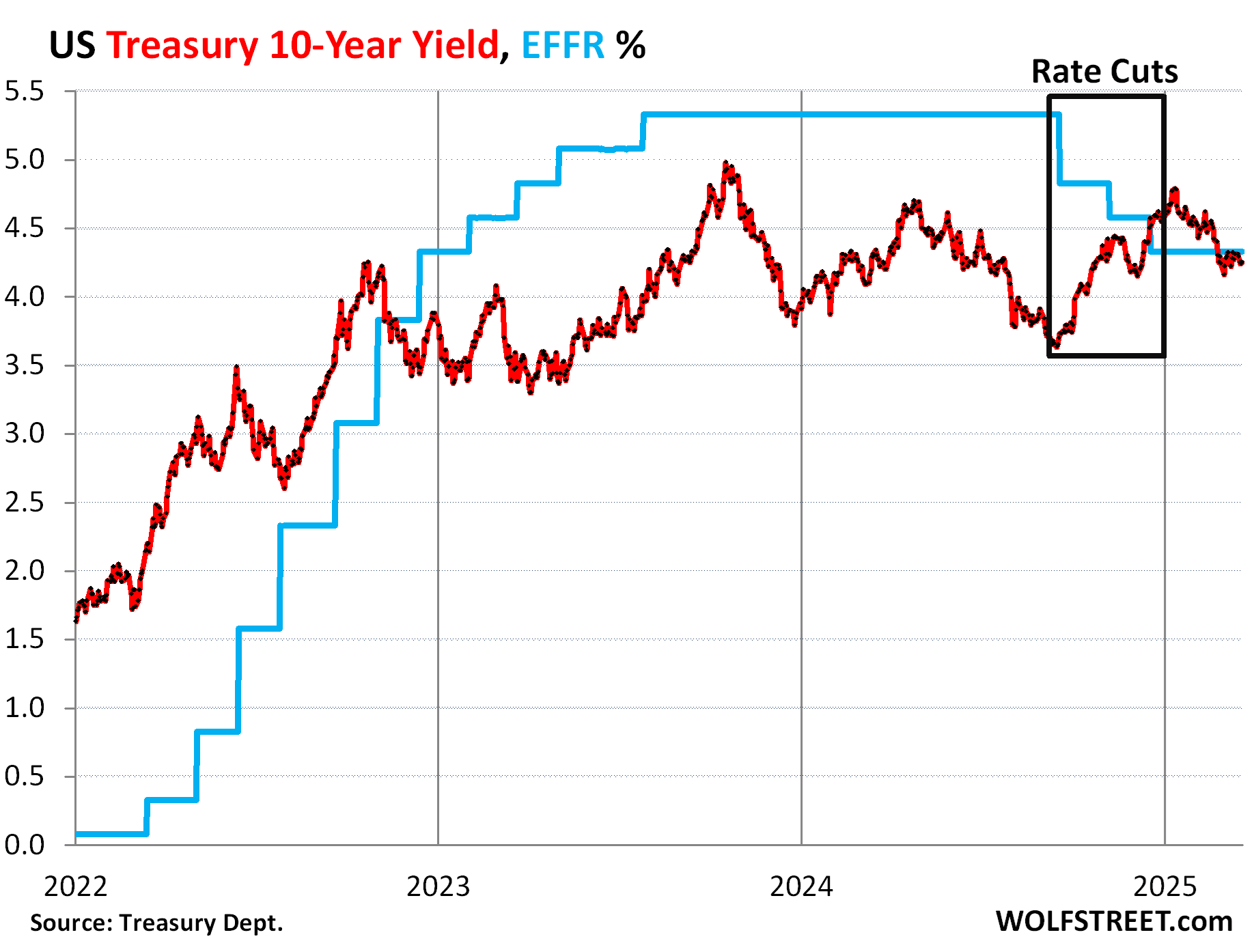
Background
In one of the most chaotic trading sessions since March 2020, U.S. 10-year Treasury yields spiked to 4.22%—a move that clashes with President Trump’s plan to lower borrowing costs while refinancing America’s growing debt. The surge happened despite risk-off sentiment in markets, raising concerns about deeper cracks in global financial stability.
Key Points
- Yields rose even as markets turned risk-averse, defying the usual trend where bond prices rise and yields fall.
- Trump’s sweeping tariffs triggered global turmoil—prompting equity volatility, a 10% intraday swing in Bitcoin, and a global bond selloff.
- Foreign selling theories emerged, with Saxo Bank citing potential Chinese divestment of U.S. Treasuries, but Jim Bianco countered, arguing that a rising dollar suggests domestic inflation fears instead.
- China holds ~$761B in U.S. debt, but analysts like Michael Pettis insist China can’t weaponize Treasuries due to its current account dynamics.
Key Takeaway
The jump in 10-year yields exposes friction between Trump's tariff-driven policies and his refinancing ambitions, raising the specter of inflation-driven bond market stress—just as the U.S. seeks economic stability amid global de-risking.
Trump-Linked WLFI Proposes Fixed USD1 Stablecoin Airdrop to Early Supporters

Background
World Liberty Financial (WLFI), a crypto initiative tied to the Trump family, has launched a governance proposal to airdrop its upcoming USD1 stablecoin to all WLFI token holders. The move aims to strengthen community engagement and test the stablecoin’s distribution mechanics ahead of a wider rollout.
Key Points
- All WLFI holders would receive a fixed amount of USD1, regardless of wallet size.
- The airdrop is designed to reward early adopters and supporters of the ecosystem.
- WLFI seeks to validate the airdrop functionality before broader stablecoin deployment.
- This step is part of WLFI’s larger strategy to build trust and utility within its ecosystem.
Key Takeaway
WLFI’s airdrop proposal signals an effort to activate its base and add real use cases for USD1, as it prepares for broader adoption of its stablecoin infrastructure.
Pakistan Appoints Former Binance CEO Changpeng Zhao as Strategic Advisor to Crypto Council

Background
Pakistan has named Changpeng Zhao, the former CEO of Binance, as a strategic advisor to its national Crypto Council. The appointment reflects the country’s ambition to modernize its financial infrastructure and embrace blockchain innovation.
Key Points
- Zhao will advise on crypto regulation, infrastructure, education, and adoption strategies.
- The move aligns with Pakistan’s Web3 ambitions and efforts to tap into its youth-driven digital economy.
- With over 60% of the population under 30, Pakistan sees crypto as a potential growth sector.
- Zhao’s experience leading the world’s largest exchange adds global credibility to the country’s plans.
Key Takeaway
By enlisting CZ, Pakistan positions itself to play a more serious role in the evolving crypto landscape, aiming to bridge global expertise with domestic opportunity.
Mantra Launches $108M Fund to Boost RWA Tokenization and DeFi Growth
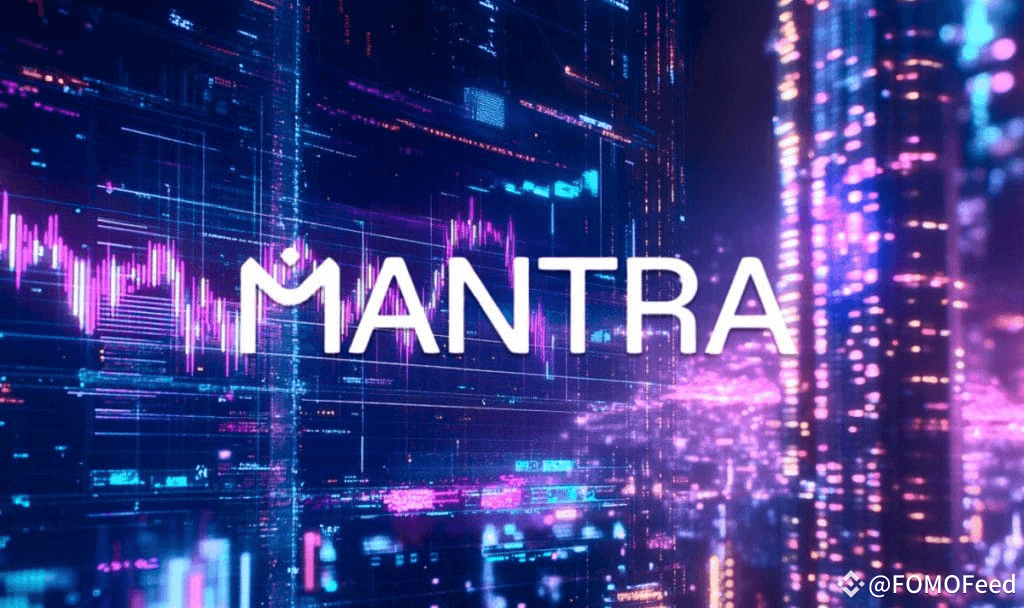
Background
Layer-1 blockchain Mantra has introduced a $108,888,888 fund to invest in startups focused on real-world asset (RWA) tokenization and decentralized finance (DeFi), aiming to support ecosystem growth amid rising institutional interest.
Key Points
- Mantra Ecosystem Fund (MEF) will back projects at all stages, with a focus on RWA and DeFi infrastructure.
- The capital will be deployed over four years with backing from firms like Brevan Howard Digital, Laser Digital, and Amber Group.
- The fund’s launch follows Mantra's approval as the first DeFi platform licensed under Dubai’s VARA.
- Institutional demand for RWAs is rising, with market cap reaching $19.6B, and analysts expecting $50B by year-end.
- BlackRock’s BUIDL fund has also seen exponential growth, reflecting broader support for asset-backed digital products.
Key Takeaway
Mantra’s $108M fund positions the chain as a serious player in the RWA space, signaling growing conviction that real-world assets are crypto’s next institutional frontier.
NFT Trader Faces Prison for $13M Tax Fraud on CryptoPunk Sales

Background
Waylon Wilcox, a former NFT trader, has pleaded guilty to underreporting $13 million in profits from selling CryptoPunks. The case highlights growing regulatory pressure on crypto investors as the IRS ramps up enforcement efforts.
Key Points
- Wilcox earned $7.4M from 62 CryptoPunks in 2021 and $4.9M from 35 in 2022 — but filed false tax returns in both years.
- He underreported income by a total of $13M, reducing tax due by over $3.2M.
- The IRS and DOJ confirmed Wilcox intentionally marked “no” when asked about digital asset transactions.
- He now faces up to six years in prison, supervised release, and fines.
- The IRS emphasized the need for confidence in tax compliance, especially in crypto markets.
Key Takeaway
As NFT profits draw more regulatory scrutiny, this case underscores that tax evasion—especially in digital assets—will not go unnoticed.